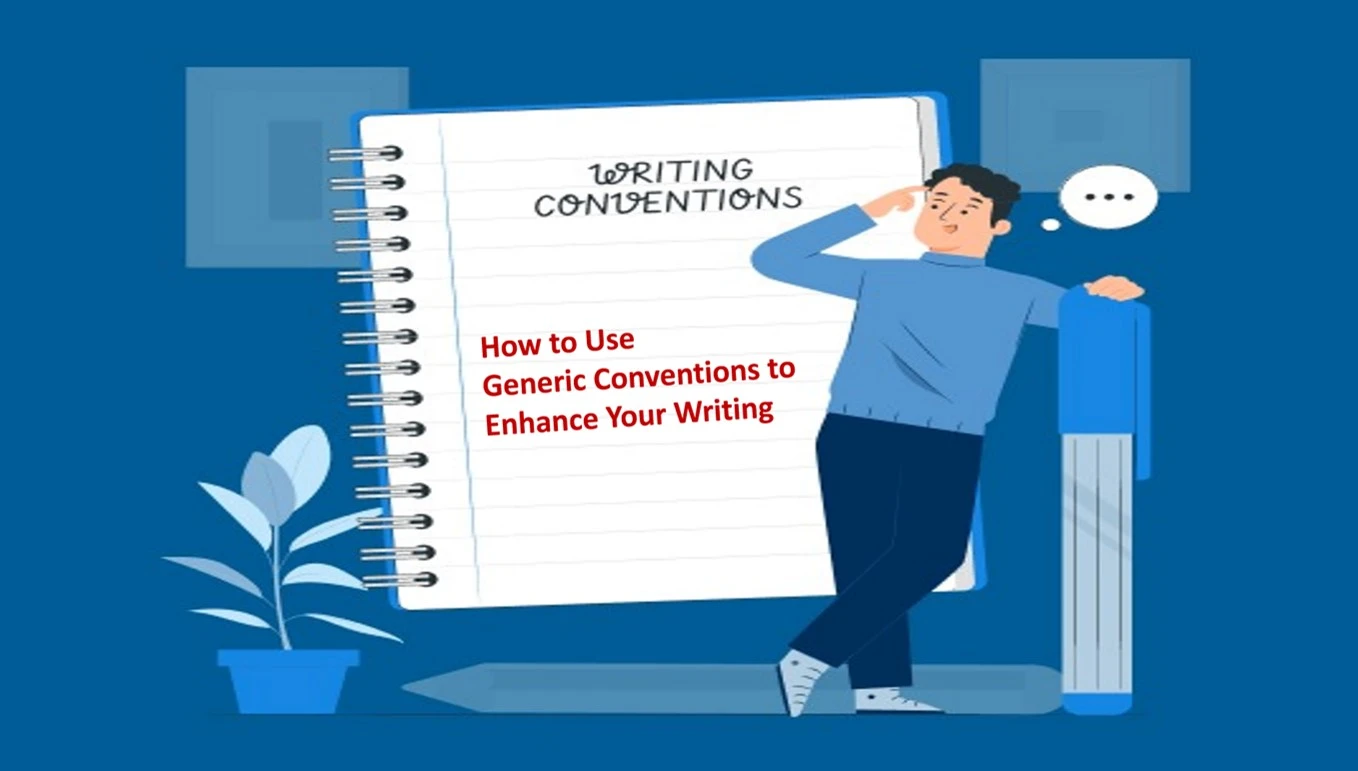How to Use Generic Conventions to Enhance Your Writing
Generic conventions are the established norms and expectations of a particular genre or type of writing. They can be used to create a sense of familiarity and comfort for readers, or to subvert expectations and create something new and exciting. In this guide, we'll explore the different types of generic conventions and how to use them effectively in your writing.

Understand what generic conventions are
Before you can effectively use generic conventions in your writing, it's important to understand what they are. Generic conventions refer to the traditions and conventions that are commonly used in particular genres of literature, film, or other art forms. These conventions help to define and distinguish different genres, and can include elements such as:
- Plot structure: Different genres often follow specific patterns of plot structure, such as the three-act structure commonly used in Hollywood films or the hero's journey structure often used in epic stories.
- Character archetypes: Certain genres tend to use particular character types, such as the femme fatale in film noir or the tragic hero in Greek tragedy.
- Setting: The setting of a work can also be a defining characteristic of its genre, such as the dystopian future settings often used in science fiction or the Gothic castles of horror stories.
- Narrative point of view: Different genres may also use particular narrative perspectives, such as the first-person perspective often used in memoirs or the omniscient narrator in classic literature.
- Language use: The language used in a work can also be influenced by its genre, with some genres favoring more formal or archaic language (such as historical fiction) and others favouring more colloquial or slang-filled language (such as contemporary young adult fiction).
- Themes: Certain themes and motifs are often associated with particular genres, such as the theme of love and romance in romantic comedies or the theme of death and mortality in Gothic literature.
- Symbolism: Different genres may also use particular symbols or images to convey meaning, such as the use of the rose as a symbol of love in poetry or the use of the colour red as a symbol of danger in film.
By following these conventions, writers can create a sense of familiarity and comfort for readers, while also signalling what type of story they are telling. However, by subverting these conventions, writers can create something new and exciting that challenges readers' expectations.
Identify the genre of your writing
The first step in using generic conventions to enhance your writing is to identify the genre or type of writing you are working with. This could be anything from a romance novel to a horror short story to a technical report. Once you have identified the genre, research the established conventions and expectations for that type of writing. This could include things like common plot structures, character archetypes, and language usage. By understanding these conventions, you can use them to your advantage to create a compelling and engaging piece of writing.
Study the conventions of your chosen genre
Before you start writing, it’s important to study the conventions of your chosen genre. This will help you understand the expectations of your audience and ensure that your writing is effective. For example, if you’re writing a romance novel, you’ll want to study the common plot structures, character archetypes, and language usage of the genre. This will help you create a story that resonates with readers and meets their expectations. By studying the conventions of your chosen genre, you can also identify opportunities to subvert or play with those conventions to create a unique and memorable piece of writing.
Use conventions to create a sense of familiarity for readers
One of the main benefits of using generic conventions in your writing is that it creates a sense of familiarity for readers. When readers pick up a book or article in a certain genre, they have certain expectations about what they will find. By using the conventions of that genre, you can meet those expectations and make it easier for readers to engage with your writing. This can be especially important for new or emerging writers who are trying to build an audience. By using familiar conventions, you can help readers feel more comfortable with your writing and increase the chances that they will come back for more.
Experiment with conventions to add a unique twist to your writing
While using generic conventions can be helpful in creating a sense of familiarity for readers, it’s also important to remember that you can use them in unique and creative ways to add a twist to your writing. For example, you could take a common convention in your genre and subvert it in some way, or combine conventions from different genres to create something entirely new. Don’t be afraid to experiment and play with conventions to make your writing stand out and capture readers’ attention. Just be sure to do so in a way that still meets the expectations of your audience and stays true to the overall tone and style of your writing.
Read Also: Reference Writing in the Academic Assignments


